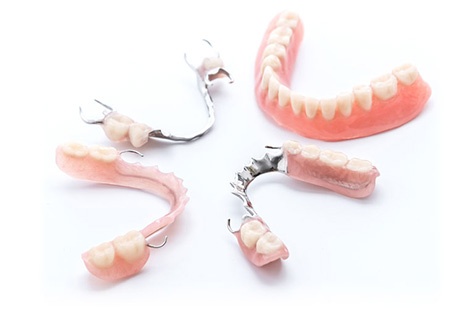
4 Things You Should Know About Magnetic Dentures Before You Request Them
Opposites attract. That’s one reason why magnetic dentures work so well. But what should you know about them before you ask your dentist to secure your dentures with magnets?
1. Magnetic Dentures Are Implant Overdentures
Magnetic dentures are a type of implant overdentures. Dental implants are surgically placed in the jawbone. An magnetic abutment, or connector, is placed on top of the implants. Often, a healing period of several months is allowed before your permanent dentures are placed. Magnets in the base of the denture lock into place on the abutment.
2. Advantages of Magnetic Dentures
- Stable magnetic force – Strong magnetic forces guide the denture to the right position and keep it in place. Close contact between the denture base and implant abutments is not required for the dentures to lock into place.
- Easy handling – They are easier to place and remove by patients with impaired motor skills.
- Better oral hygiene – There are no holes or notches in the denture base, which decreases the chances of food and debris getting trapped around them.
- Less impact – The magnetic force limits lateral movement of the denture. This relieves some of the pressure that a denture can put on your gums, bone ridge, and dental implants.
3. What Are They Made Of?
Although magnetic denture systems often have the magnet enclosed in a capsule, some systems contact a trace of nickel. Some magnets are enclosed in a stainless steel case or are coated with ceramic to limit nickel exposure and add resistance to abrasion and corrosion. Let your implant dentist or prosthodontist know if you have metal sensitivities or allergies. Some dentists use magnets made of the minerals samarium-cobalt or iron-neodynium-boron. If you have concerns about the types of metals used, ask your implant dentist about it.
4. Request a Consultation
Before you choose any method of stabilizing your dentures, request a consultation with a skilled prosthodontist. Prosthodontists are specialists who, after dental school, completed two years of specialized training in restoring and replacing missing teeth.
After an examination and 3-D imaging, the doctor can let you know the following:
- If you have adequate jawbone density to support dental implants, or if bone grafting is needed
- The minimum number of implants needed to support your denture
- The best method for stabilizing your denture
Magnetic dentures might be right for your case, but don’t insist on this method unless you understand the pros and cons. A conscientious prosthodontist will let you know the results you can expect with various methods for securing your dentures.
We recommend that you schedule at least two consultations with different prosthodontists so you can compare the options, costs, and methods of achieving the results you want. Keep in mind that the lowest fees aren’t always the safest and healthiest option for your smile.
This blog is sponsored by Naperville award-winning prosthodontist Dr. Anthony LaVacca.
































